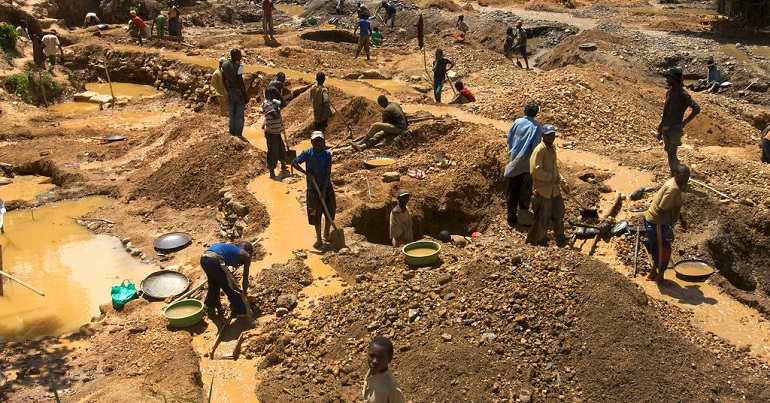Facing up to the reality of green tech production

Climate crisis is getting a lot of coverage. We have to be thankful that people are at last paying attention. Advocacy for renewable energy is gaining new traction, and we’re seeing growing interest in electric transport. But are we being honest about the downsides?
The focus is on wind and solar. Both have issues while they are being constructed. Both have issues when they reach the end of their lives. It’s gratifying to look at a brand new wind turbine, slowly turning in the wind and generating electricity for thousands of homes. Or seeing new houses with solar panels that provide almost enough energy to achieve carbon neutrality. And I watch enviously as the occasional Tesla Model S goes by!
The impact of rare earth metals
But all these things have issues. Offshore wind turbines frequently use permanent magnets containing neodymium. Most of this is mined in China, along with other rare earth metals. The process could be relatively clean, but in practice, it isn’t. Land is being contaminated and workers are at risk from poor practices. Matters are made worse by much of the product being sold on a black market to evade controls by the Chinese government.
Solar panels are mostly made of common materials, but the process involves the use of dangerous chemicals. Silicon dust is a hazard for workers, and water is needed for washing the wafers.
Electric vehicles use rare earth metals too, with the attendant pollution. Worse still, the very large batteries for vehicles currently require the use of cobalt. Unfortunately, most cobalt is mined in the Democratic Republic of the Congo in appalling working conditions. Children as young as seven are working in dangerous conditions for paltry wages. UNICEF estimates that 40,000 children are involved in mining in the DRC, many of them mining cobalt.
Renewable waste disposal
All our renewable energy technology comes to the end of its working life, sooner or later. On the whole, wind turbines and solar panels are lasting well, but not forever. The structure of a wind turbine is mostly steel, with some other metals in the mechanism. Much of this is recyclable, as are the neodymium magnets. But blades are a problem. They are built from composites, mainly glass or carbon fiber reinforcement in a polymer matrix. The elements are fused together, making recycling difficult, and landfill currently the main option.
The elements of solar panels can be broken up, and a percentage of each part recycled. But there is always a percentage left over that is unusable, creating a growing problem of waste. Although the capacity to recycle is being developed, the value of the raw materials is low, so the owner of an old solar panel will have to pay for recycling. Some will inevitably be tempted to look for ways to dump them.
The same is true of the many constituent parts of electric vehicles. Some recycling will doubtless take place, but manufacturing has yet to adopt a policy of ensuring that what is built can be ultimately taken apart and reused.
Facing up to reality
In relation to the pollution and child exploitation involved in mining, we are in a moral dilemma. In general, we might want to say that we should boycott products produced at such a price. But can we afford to do so, if the price is failing to deal with the issue of climate change?
There are two important reasons why we need to be open and honest about these issues. One is that to ignore the dark side of Green developments is hypocritical. It leaves us open to a charge that we are more concerned about protecting our own lifestyles than we are about the pollution and suffering that is being caused. For this reason, we ought to be openly discussing whether there is a balance of harm that justifies what we are doing.
The other reason is that without openness we will not bring about changes. As Greens, we are generally opposed to harm to humans or the environment. But we need to demonstrate that we are serious about this, even if it causes conflict with our other goals. It may be difficult to influence what goes on in distant countries, but we should be condemned if we are not willing to try.




Leave a Reply